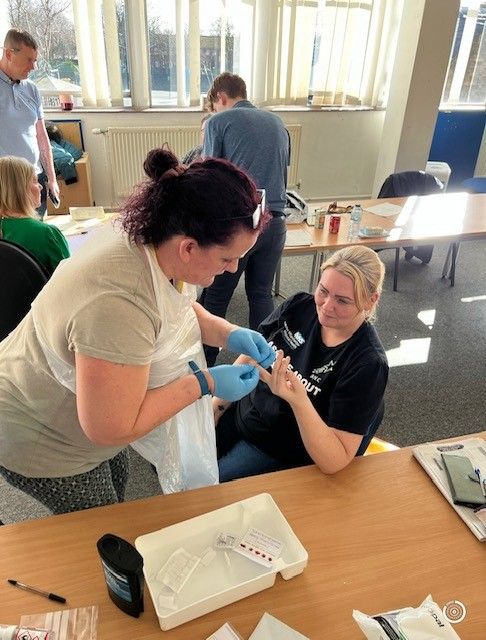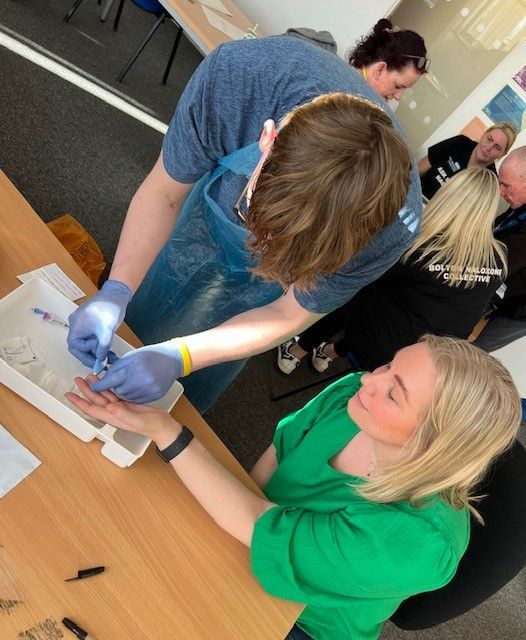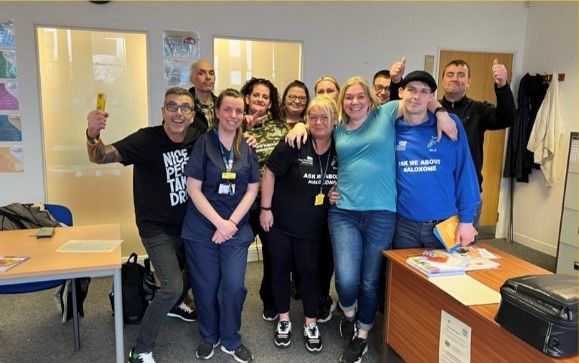Order one of our free resource packs today! Fill out the form here.
GMMH - supporting hepatitis C elimination and harm reduction
This blog has kindly been contributed by the team at the Greater Manchester Mental Health NHS Foundation Trust (GMMH).
Greater Manchester Mental Health NHS Foundation Trust (GMMH) are the provider of community addiction services across four of the ten local authority boroughs in Greater Manchester. Known as Achieve, the service operates in Bury, Bolton, Salford and Trafford (BBST) and, with GMMH as the lead provider, this is a partnership with seven other sub-contractors. Throughout our involvement in the Hep C U Later elimination programme, partners have worked innovatively and collaboratively, with a Jubilee weekend event held last year at Great Places, a housing provider, where our assertive outreach team, delivered by The Big Life Group, undertook dry blood spot testing (DBST) to service users attending the celebrations!
The Hep C U Later team have been an amazing source of support for Achieve BBST. In early 2023 a small grant was identified, enabling us to recruit administration support to assist with the wider scope of the project. The grant also provided Achieve with the opportunity to purchase further Love to Shop vouchers, complementing our testing events and encouraging engagement for those service users who the team have been struggling to secure testing arrangements with.


In March 2023, Achieve GMMH colleagues worked with a team at MRI to set up fibro scan clinics on site in Trafford as part of the Community Liver Health Check Programme and we aim to have a weekly clinic in Salford by the end of May and hopefully expand to the rest of the BBST sites over the course of 2023.
We also took delivery of a Cepheid machine and fibro scan machine in Bolton purchased by Bolton Commissioners via the Rough Sleeper Drug and Alcohol Grant, to improve the health of Bolton rough sleepers.
In April 2023, the Hep C U Later team graciously loaned Achieve a Cepheid machine, which is sited in Achieve Bury and will be an important part of the BBST Harm Reduction team’s efforts to achieve Hep C micro elimination in this area. To support this work, we have also recently purchased a large quantity of rapid antibody tests.
GMMH deliver numerous services across Greater Manchester, to those experiencing multiple disadvantage, including homelessness and co-occurring conditions of mental illness and drug and/or alcohol dependency. We will be working hard to make sure we reach those who are most vulnerable and have also invested in training our naloxone peers in dry blood spot testing, in the belief that it’s very often not service users who are hard to reach, but services not reaching those in need.
To date our Achieve clinical team have delivered DBST training to eight of our BBST Harm Reduction Peers all of whom will offer peer to peer (P2P) DBST out in the community as part of our enhanced peer led harm reduction offer.
This has been a wonderful coproduction which has seen the GMMH Harm Reduction Peers working together with Achieve staff to develop the Standard Operating Procedure (SOP) and processes to support those with lived and living experience of addiction to work in partnership with the trust to take DBST out into the community.
Our peer led DBST approach aims to meet people where they are by taking treatment and wider support to those who for whatever reason are not accessing services.
Everyone is really excited to see the project grow and progress ensuring that we put the BBST Harm Reduction peers front and centre at the heart of everything!
The work detailed in this blog was the result of a collaborative team effort across GMMH with support from the highly valued naloxone peers and George Charlton.
